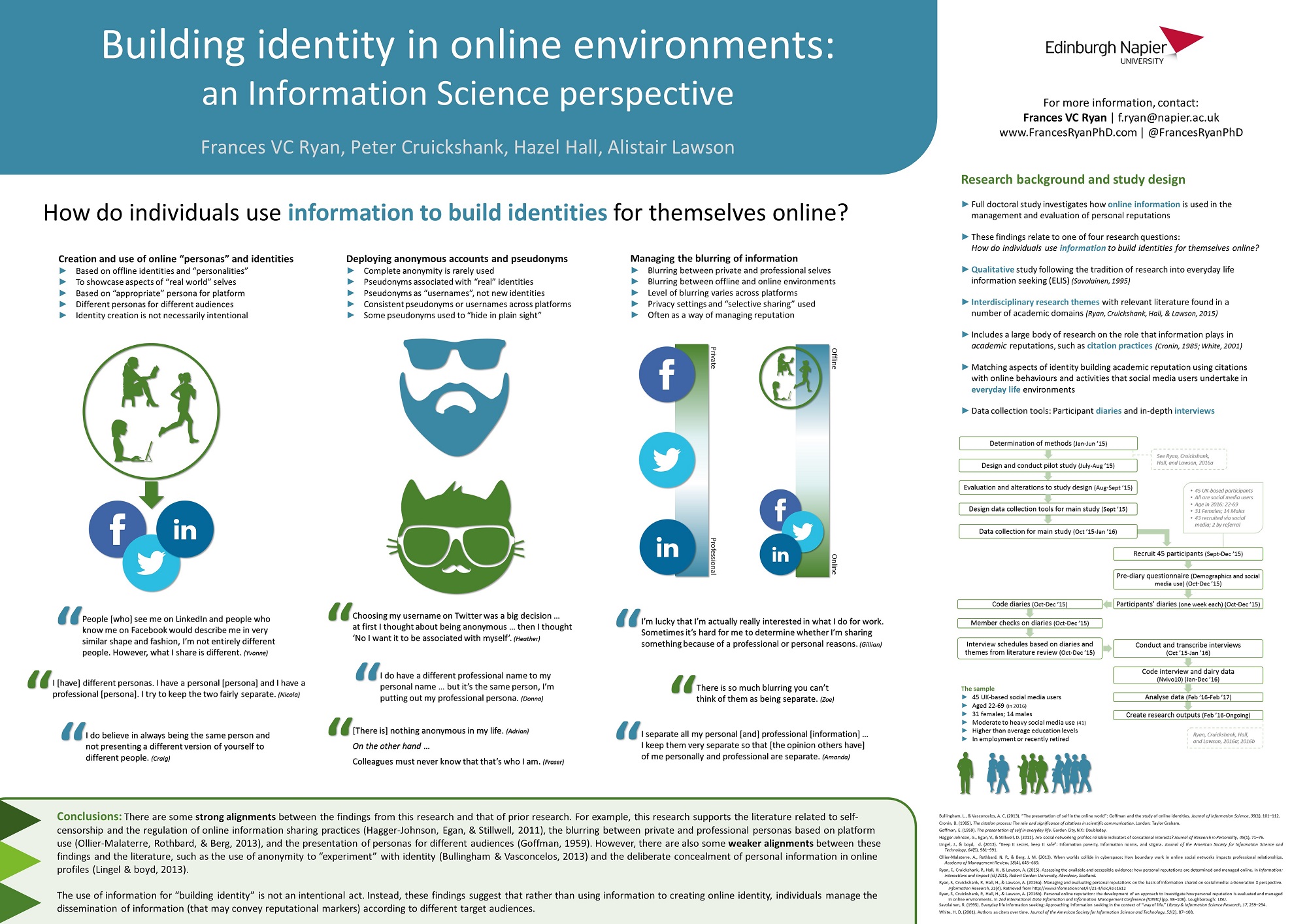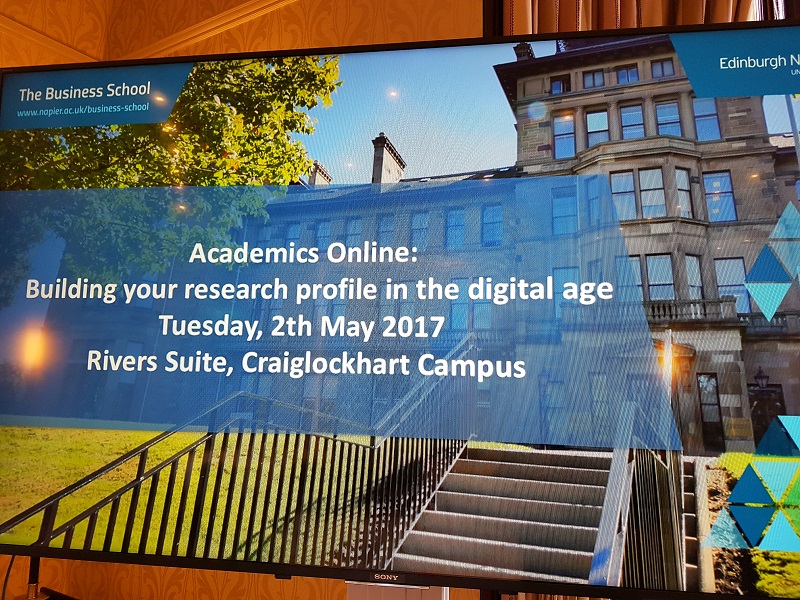I am well and truly into the thick of thesis season now! In fact, I have now added three chapters to my master thesis document. The new chapters are my findings chapters, one for each of my three research questions.
Tag: reputation building

Last month, I was notified that a journal paper I wrote has been accepted for publication. The paper, “Blurred reputations: Managing professional and private information online”, was co-authored with my PhD supervisors, Peter Cruickshank, Professor Hazel Hall, and Alistair Lawson.

I am leaving for Washington, DC tomorrow morning to attend the 80th Annual Meeting of the Association for Information Science and Technology (ASIST), where I will be presenting some of my research in the form of an academic poster. The

I have been accepted to present a poster at the 80th Annual Meeting of the Association for Information Science and Technology. This year’s event will be held in Washington, DC. It will be my second time attending the conference, and

I have recently started a new Twitter account that is dedicated to my professional or “academic” self (@FrancesRyanPhD). It wasn’t something I was desperate to do, and it isn’t something I’m completely happy about. However, it is something that I

Yesterday was the Edinburgh Napier University’s Research Conference. Based at our Craiglockhart campus, the conference was designed to bring together research-active staff and research degree students from across the university. (Read up about the event on the Twitter hashtag #NapRes17.)

Last week I delivered a half-day workshop at the Scottish Graduate School for Social Science’s Summer School. The workshop, “Building your academic reputation online”, was designed for PhD students at any stage of their studies. There were two primary goals

Last week I spoke at the “Academics Online: Building your research profile in the digital age” workshop to be held at Edinburgh Napier University’s Craiglockhart Campus. The event was organised by Dr Ivana Rihova and Dr Nathalia Tjandra, thanks to support from the Research and Innovation Office (RIO)
